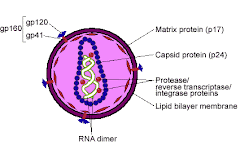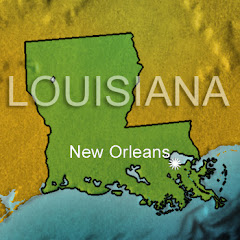"It's a daunting task to trace the origins of any deposit when there are about 700,000 global wire transfers occurring every day [ref]. Which is the dirty money and which is the clean stuff? Within the United States, there are two primary methods employed by the government to detect and combat money laundering: legislation and law enforcement.
The United States addresses the crime of money laundering in countless legislative acts. Here are just a few of them:
The Bank Secrecy Act (1970) basically eliminates all anonymous banking in the United States. It gives the Treasury Department the ability to force banks to keep records that make it easier to spot a laundering operation. This includes reporting all single transactions above $10,000 and multiple transactions totaling more than $10,000 to or from a single account in one day. A banker who consistently violates this rule can serve up to 10 years in prison.
The 1986 Money Laundering Control Act makes money laundering a crime in itself instead of just an element of another crime, and the 1994 Money Laundering Suppression Act orders banks to establish their own money-laundering task forces to weed out suspicious activity in their institutions. The 2001 U.S. Patriot Act sets up mandatory identity checks for U.S. bank patrons and provides resources toward tracking transactions in the underground/alternative banking systems frequented by terrorist money handlers. For a more complete list of U.S. anti-money-laundering legislation, see FDIC: Bank Secrecy Act and Anti-Money Laundering.
In addition to legislation intended to detect a money-laundering operation, undercover stings are also a component of the fight. The DEA's Operation Juno, which ended in 1999, is a prime example. The DEA out of Atlanta conducted a sting operation that involved providing resources to drug traffickers to launder money. The undercover DEA agents made deals with the traffickers to turn drug money from dollars to pesos using the Columbian Black Market Peso Exchange. The operation ended with 40 arrests and the seizure of $10 million in drug proceeds and 3,600 kilograms of cocaine.
Despite these victories, the truth is that no individual nation has the power to stop money laundering -- if one country is hostile to laundering, criminals simply look elsewhere for a place to clean their money. Global cooperation is essential. The most prominent international organization in this respect is probably the Financial Action Task Force (FATF), which has 33 member states and international organizations on its roster list as of 2005. The FATF issued the "40 Recommendations" for banks (there are actually 49 now, but the moniker hasn't changed) that have become the anti-money-laundering standard. These recommendations include:
* Identify and do background checks on depositors.
* Report all suspicious activity. (For example, if a background check revealed that depositor A works in a steel factory, and he typically deposits $2,000 every two weeks, a series of 10 $9,000 deposits over the course of two weeks should raise a red flag.)
* Build an internal taskforce to identify laundering clues.
The "recommendations" are really more like rules than friendly tips. The FATF keeps a list of "uncooperative countries" -- those who have not enacted the recommendations. The FATF encourages its member states not to deal with those countries in financial matters.
Other global organizations fighting money laundering include the United Nations, the International Monetary Fund, the World Bank, and smaller groups like the Caribbean FATF and the Asia/Pacific Group on Money Laundering.
While increased worldwide efforts are making a small dent in the money-laundering industry, the problem is huge, and the money launderers are winning overall. Countries with bank-secrecy rules, which arguably have legitimate benefits to the honest depositor, make it extremely hard to track money once it's transferred overseas. Still, the FATF's uncooperative list has gone from 15 countries in 2000 to two countries (Myanmar and Nigeria) in 2005. By most accounts, this is a significant sign of progress. Only increased global awareness and cooperation can curb the success of the money-laundering industry."
*Note: Stan "Pampy" Barre' was originally charged with money laundering. Stan "Pampy" Barre' later pleaded guilty to other charges. Let's hope Stan "Pampy" Barre' pay enough in restitution to make up for the original money laundering charges.
Tuesday, September 11, 2007
Fighting Money Laundering
Blogs'FamilyCorruptionInTheBigEasy||
FamilyCorruptionInTheBigEasy: Part 2
Posted by
Boop
at
1:14 AM
![]()
Labels: corrupt businessmen, FBI, fighting money laundering, government, Stan "Pampy" Barre, USDOJ
Subscribe to:
Post Comments (Atom)


















1 comment:
When is Stan "Pampy" Barre's son going to prison? I hope it is real soon.
Post a Comment